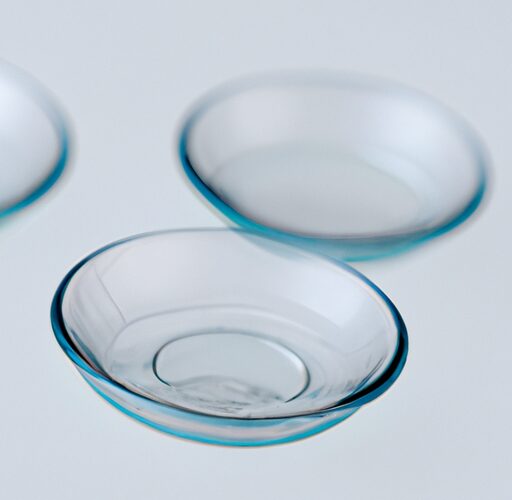If you wear corrective lenses, you’ve probably heard of gas permeable contact lenses. Sure, they might not be as common as soft lenses, but they offer their own unique set of benefits. Here’s everything you need to know to determine whether gas permeable lenses are right for you.
Read More: The Pros and Cons of Toric Gas Permeable Contact Lenses
What Are Gas Permeable Contacts?
Gas permeable contact lenses, also known as rigid gas permeable lenses (RGPs), are made of a hard plastic material that allows oxygen to pass through the lens to your cornea. Unlike soft lenses, they don’t contain water, making them resistant to protein deposits and other bacterial growth that can lead to infections.
Why Choose Gas Permeable Contacts?
One of the biggest benefits of gas permeable lenses is their durability. These lenses can last up to three years with proper care, as opposed to disposable soft lenses that need to be replaced every few weeks. Other benefits include:
Read More: The Benefits of Rigid Gas Permeable Extended Wear Contact Lenses
- Sharper vision: The rigid material allows for a clearer, sharper vision than soft lenses, particularly for people with astigmatism or other corneal irregularities.
- Reduced risk of infection: Because gas permeable lenses resist build-up of debris on the lens surface, they may be a healthier option for people who are prone to eye infections.
- Comfort: While it may take some time to get used to the lenses, many people find them to be comfortable once they’ve adjusted to them. Plus, they don’t dry out like soft lenses can.
Who Should Consider Gas Permeable Contacts?
People with certain vision conditions may benefit the most from gas permeable contact lenses. These include:
- Astigmatism: Gas permeable lenses can help correct astigmatism more effectively than soft lenses.
- Keratoconus: This is a condition where the cornea becomes thinner and takes on a cone shape, which can cause distorted vision. Gas permeable lenses can help correct the vision issues associated with this condition.
- Lenticular astigmatism: This condition occurs when the natural lens in the eye has an irregular shape. RGPs can help correct the vision issues associated with this condition.
Who Should Avoid Gas Permeable Contacts?
While gas permeable lenses offer many benefits, they may not be the best choice for everyone. If you have any of the following issues, you should avoid RGPs:
Read More: Can I wear contact lenses if I have astigmatism?
- Dry eye syndrome: Gas permeable lenses can exacerbate dry eye symptoms, so they may not be the best choice for people with chronic dry eyes.
- Poor lens hygiene: RGPs require regular cleaning and disinfecting. If you’re not willing to commit to proper lens care, you may be better off with soft lenses.
- Inability to tolerate rigid lenses: Some people are simply unable to tolerate hard lenses due to their thickness or rigidity.
Wrapping Up
Gas permeable contact lenses may not be as popular as soft lenses, but they offer many benefits, particularly for people with certain vision conditions. They may take some getting used to, but once you’ve adjusted, you may find that they offer sharper vision, reduced risk of infection, and long-lasting durability. To determine if gas permeable lenses are the right choice for you, talk to your eye doctor.
Read More:
Contact Lens Care and Workplace: Tips for Comfortable Wear
The Benefits of Toric Silicone Hydrogel Daily Wear Contact Lenses
Contact Lens Care and Traveling: Tips for Clean Lenses on the Go

